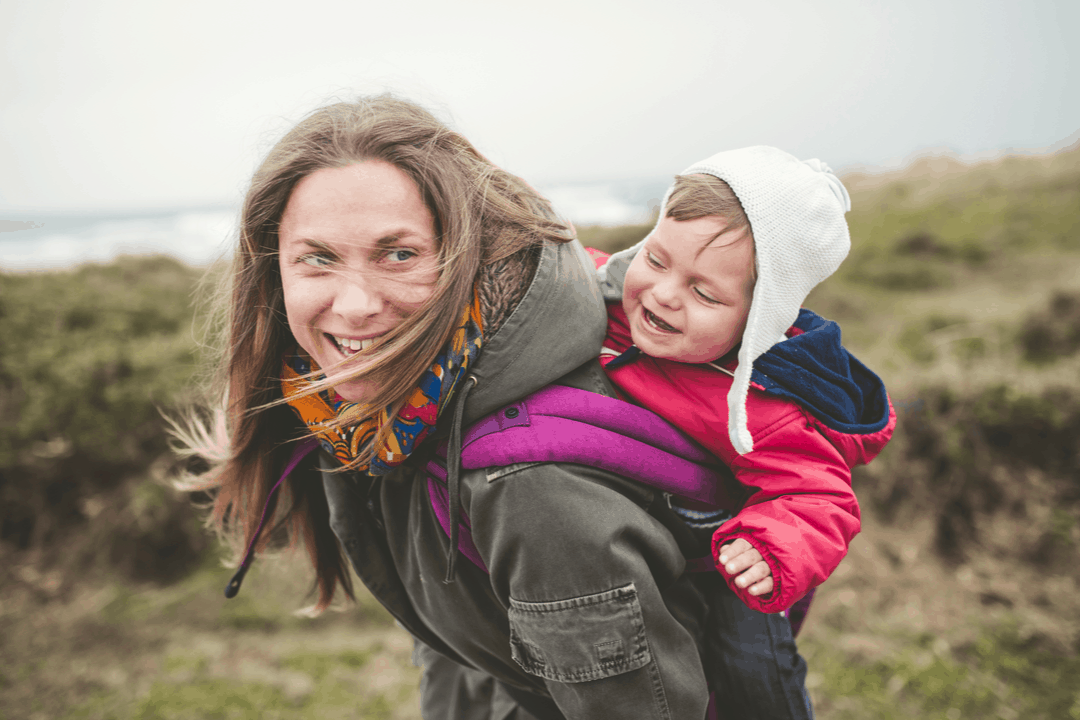As I sat down to write this blog, I couldn’t help but think of a few moments I experienced in 2020. I know just mentioning that year can be challenging. However, I promise these stories are going to be uplifting. It was last November that I was out for a hike. As I walked along the trail, I noticed a family coming my way. This family included a precious infant nestled against the back of their parent being carried up a hill. I quickly stepped to the side and looped my mask across my ears to follow COVID prevention protocol. As I stood 6 feet away, the family passed by, and the baby looked right at me. I immediately started making funny faces as the baby grinned from ear-to-ear. Then it dawned on me. I’m wearing a mask. How could this baby see my joyous expressions? My husband reassured me that despite my covered face, my eyes were smiling at the infant.
Not long after this sweet interaction, I was out for a run when I stopped for an energetic toddler. They were chasing after their ball as their curls bounced atop their head. This little one also looked my way, and of course, my dimples beamed as I waved my hand. I had distanced myself from this kiddo, but they yearned for connection and started running my way. I wanted to jog right toward this toddler and continue to engage in this wonderful moment. However, times are different now, and the parent swooped in and grabbed the child before they could get too close. Once everyone stood within a safe distance, I continued to converse with the little one from far away as they smiled and shouted one-word sentences toward me.
The year 2020 was a tough one, yet I cherish these interactions when I reflect on these moments. I realize these kiddos did more than brighten a dark year. They gave me hope. In the midst of 2020, an infant still learned how to read joyous facial cues even though many of their interactions were shared with people wearing masks. A toddler still managed to find joy in their playful explorations despite their parent’s need to act with warranted caution and keep them at a far-away distance from others.
Infants and toddlers can’t comprehend the stressors that the year 2020 brought. However, they can still tune in to their parents’ emotions and be affected by stress.2 So, how are these children still thriving in this stressful situation our world continues to battle each day?
I think the answer is resilience. You’re probably quite familiar with the idea of resilience as a home visitor. It’s an individual’s ability to bounce back in times of stress and keep pushing on.3 Before resilience can begin to form, there has to be a secure attachment between a parent and child or another loving adult and child.6 As parents respond to their kids with nurturing care, this unique attachment or close connection begins to develop.1
As this beautiful bond continues to strengthen, parents make mistakes, but these messy moments create opportunities for kids to build resilience. This is because when parents recognize a disconnection with their child, and they reconnect with them, children are reminded that their parents aren’t perfect. However, it becomes clear to kids that their parents know how to show their love. Through these reconnections, children learn how to resolve conflict and bounce back from tough times.4,5,6
Knowing this research has helped me see how kids have continued to be resilient even during a pandemic. Many of the parents you visit probably wish they could make COVID just go away, but we know it’s not that simple. Despite the stress and precautions families are managing, parents still have opportunities to show their love. Remind parents that they don’t have to be perfect. No person can be expected to handle this pandemic without challenges. However, you can reassure parents that as long as they reconnect with their kids, their children will know they’re loved.6 In fact, they’ll grow up to be quite resilient, meaning no matter what curveball this world throws them, they’ll still have the ability to love and nurture their own children.3
References
1. Government of the Province of British Columbia. (2019). Baby’s best chance: Parents’ handbook of pregnancy and baby care. HealthLinkBC. https://www.healthlinkbc.ca/hlbc/files/bbc-7th-edition-final-nov2019.pdf
2. Lerner, C. (2017, February 17). Babies and stress: The facts. Zero To Three. https://www.zerotothree.org/resources/1709-babies-and-stress-the-facts
3. National Scientific Council on the Developing Child. (2015). Supportive relationships and active skill-building strengthen the foundations of Resilience: Working paper 13. Center on the Developing Child at Harvard University. https://developingchild.harvard.edu/resources/supportive-relationships-and-active-skill-building-strengthen-the-foundations-of-resilience/
4. Shanker, S., & Barker, T. (2016). Self-reg: How to help your child (and you) break the stress cycle and successfully engage with life. Penguin Press.
5. Siegel, D. J., & Bryson, T. P. (2014). No-drama discipline: The whole-brain way to calm the chaos
and nurture your child’s developing way. Bantam Books.
6. Siegel, D., & Bryson, T. P. (2020). The power of showing up: How parental presence shapes who our kids become and how their brains get wired. Ballantine Books.

About the Author
Rachel Cook is a Product Development Specialist. Before joining Great Kids®, she worked as a home visitor with Kentucky HANDS. Rachel lives in Berea, Kentucky, with her husband, where she loves writing and exploring nature.


